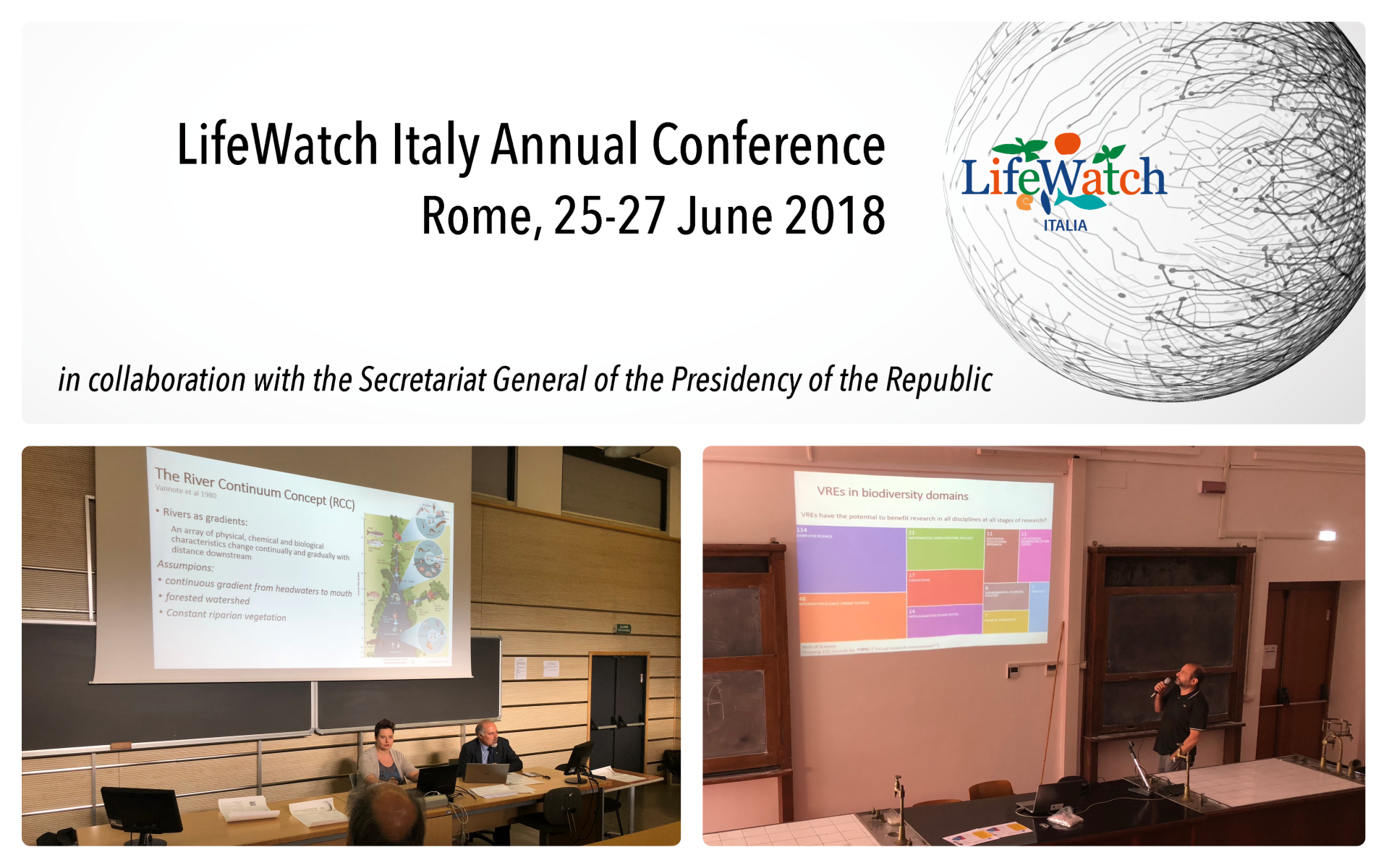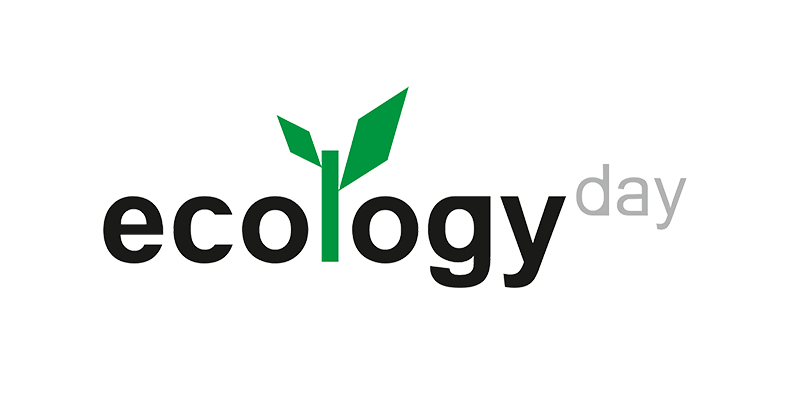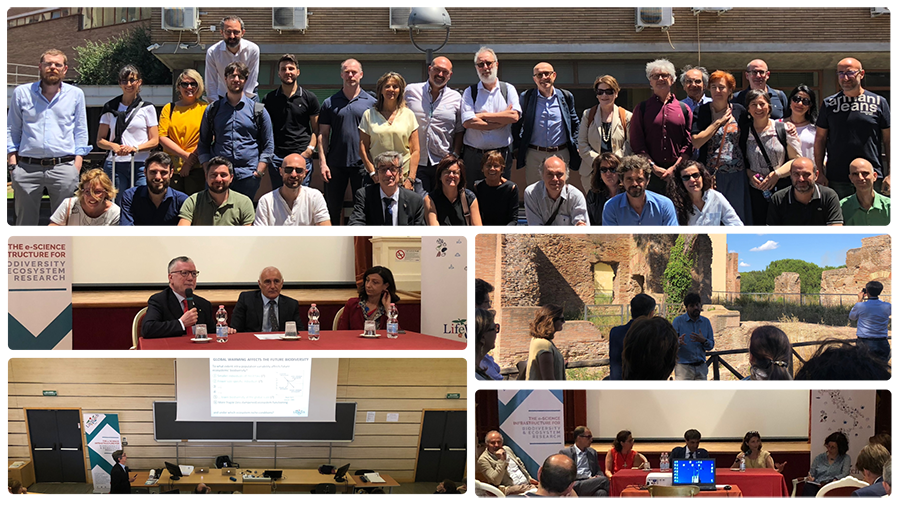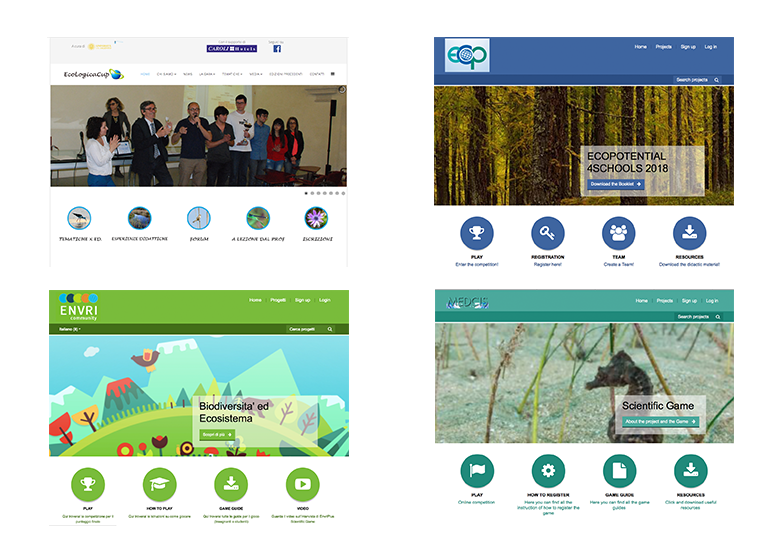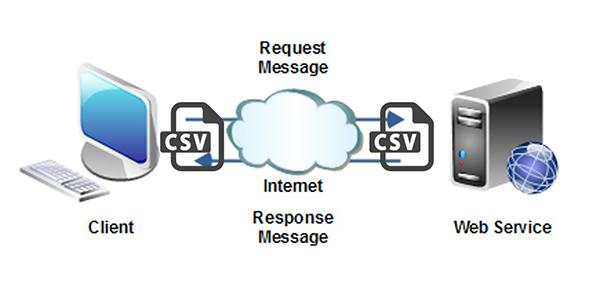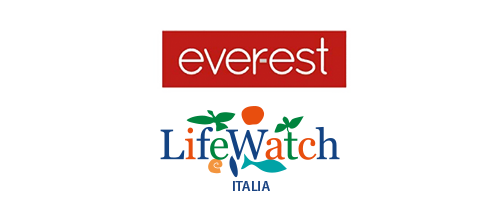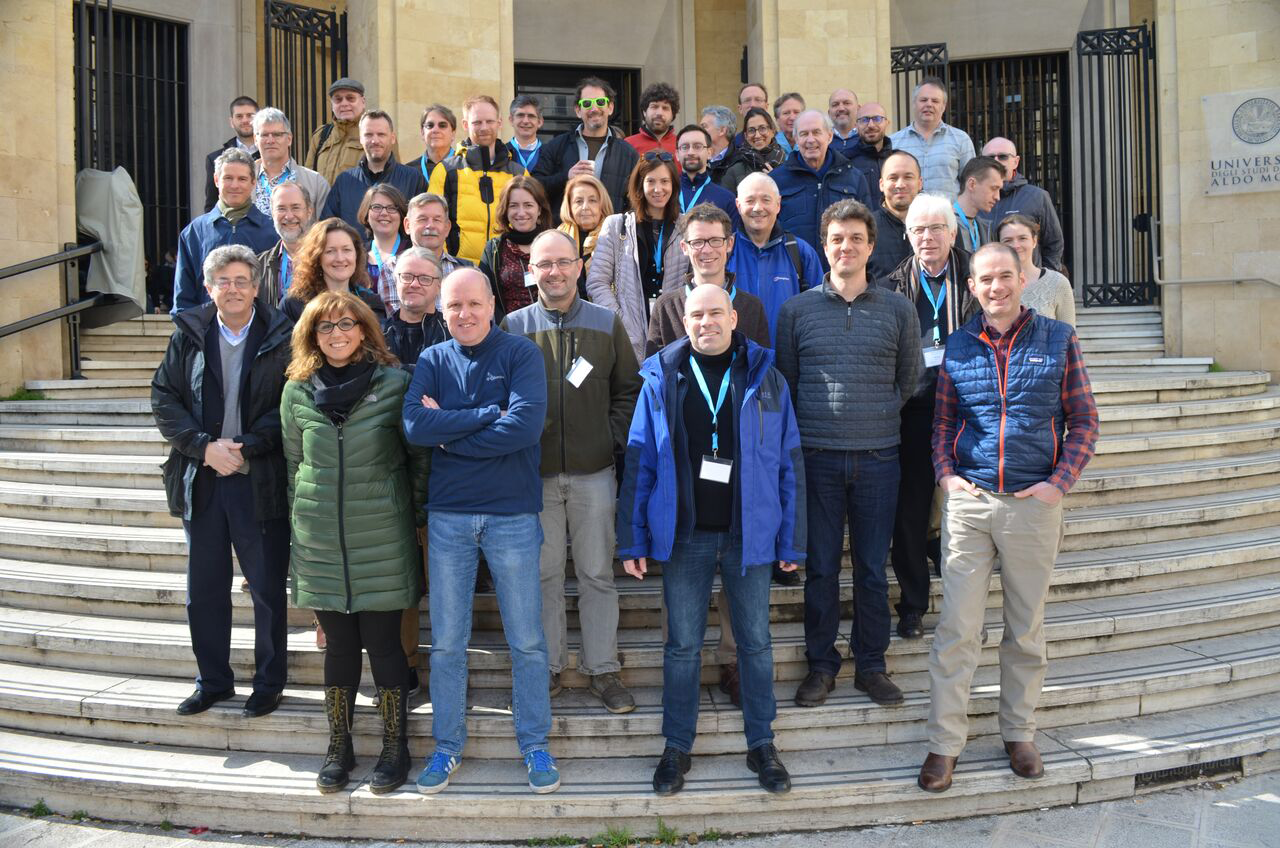From September 12th to 14th, the XXVIII Congress of the Società Italiana di Ecologia (SItE) took place in the Ex-Manifattura Tabacchi, Cagliari (Sardinia), an historic building from the second half of the 18th century, located in the city centre and currently hosting numerous cultural events. With the title “Conservation, restoration and adaptatio…
Continue readingAdvanced Phytoplankton Course
The Advanced Phytoplankton Course (APC12) is organized by the Station Biologique de Roscoff together with the Stazione Zoologica Anton Dohrn and the IOC Science and Communication Centre on Harmful Algae.
APC 12 aims to provide participants with in-depth expert knowledge on the identification, classification and phylogeny of marine microalgae (diatoms, dinoflagellates, coccolithophores, other phytoflagellates) by integrating morphological observations with molecular data and new approaches. The course will be taught by an international faculty including leading experts in the taxonomy of the different microalgal groups.
More detailed information are available on the website: https://sites.google.com/view/apc12/home. Please apply before September 1, 2018 at https://sites.google.com/view/apc12/applications
LifeWatch-ITA 2018 | Plenary and Contributed Sessions
The Annual Conference of LifeWatch Italy 2018 took place in Rome, from June 25th to 27th, and was open to the national scientific community, presenting the latest developments of the national node, welcoming also external contributions on case studies and technological solutions, creating new opportunities for interaction and cooperation with the Infrastructure.
The Scientific Conference was held in the Department Environmental Biology University of Rome – La Sapienza. It was articulated in plenary and parallel thematic sessions addressing key topics at the heart of LifeWatch Italy activities in the last two years, focusing on “Data & Metadata”, “ICT Services & Semantics Resources” and “Citizen Science, Communication of Science & Education” with 6 plenary talks and 5 oral sessions, comprising 37 contributions (including 4 digital posters).
In the session “Data & Metadata“, experiences, models and case studies on the use of data and metadata in the study of ecosystems and biodiversity were gathered. Actually, it is increasingly demanded to host data resources in public accessible archives ensuring transparency, reproducibility and sustainability of scientific research and its results. It is of great importance that in this process, data are described in a rigorous manner, completed by metadata, essential to deeply understand data and make them accessible, interpretable and reusable over time.
In the three parallel sessions dedicated to the “ICT Services & Semantic Resources“, researchers brought the experience of a number of projects and infrastructures in the development of web services and Virtual Research Environments for the study of biodiversity and ecosystems and in the implementation of semantic resources, such as controlled vocabularies and ontologies, to support interoperability among different data infrastructures.
Finally, in the session dedicated to “Citizen Science, Communication of Science & Education” ICT tools and resources to collect and analyse citizens’ observations, as well as the possibility to access training programs were presented. Presentations focused on the development of both web services, applications and ICT platforms to facilitate citizens’ involvement, from data collection to result analysis and of learning environments and gaming resources, essential to provide students the key competences to understand the context surrounding them.
All presentations are available here. Abstract book is available on the conference website.
Plenary talks:
PT1 – Alberto Basset: The HUB of LifeWatch Italy for data resources on biodiversity and ecosystems
PT2 – Fabio Attorre: The thematic node on plant biodiversity
PT3 – Nicola Fiore: Semantics for research on biodiversity and ecosystems
PT4 – Palma Blonda: A Community Modeling Platform
PT5 – Stefano Martellos: A Citizen Science Platform
PT6 – Antonello Provenzale: Protecting Natural Ecosystems: from Earth Observation to Virtual Museums
Ecology Day
The Portuguese Ecological Society – SPECO, together with the European Ecological Federation – EEF, calls the United Nations to establish the Ecology Day on 14th September 2018. The date is symbolic as it refers to the publication date of the modern definition of the ecology concept by Haeckel. In fact, this proposal directly follows up on the celebration for its 150th anniversary organized by the EEF back in 2016 and concluded by a Round Table held at the European Parliament in Brussels.
Would you like to join/support Ecology Day? – Like and share the Ecology Day facebook page https://www.facebook.com/ecologyday – Read and share the proposal to UN for the establishment of an ‘Ecology day’ – Join the events foreseen for 14/09/2018
14/09/2018, Lisbon (Portugal), “Ecology for a Sustainable Development” organised, a debate organised by SPECO (http://www.speco.pt/pt/iniciativas/ecology-day/63-eventos-2018);
14/09/2018, Cagliari (Italy), Training Day “Promoting education to sustainibility and disseminating innovative practises in Ecology teaching”, SItE Annual Conference (https://www.congressosite2018.it)
13/09/2018, “A guided tour to the urban permaculture project of FCUL”, Lisbon (Portugal) (http://hortafcul.wixsite.com/home);
“Changes in distribution patterns of epiphytic bryophytes in urban environments and their ecological and climatic significance”, provided by the cE3c (http://ce3c.ciencias.ulisboa.pt/). – Organise your event for the ‘Ecology Day’. Please, contact Alberto Basset (alberto.basset@unisalento.it) and/or Maria Amélia Martins-Loução (maloucao@fc.ul.pt)
2018 Annual Conference of LifeWatch Italy
From 25 to 27 June 2018, LifeWatch Italy held its annual national conference in Rome. The Annual Conference of LifeWatch Italy, open to the national scientific community, aimed at presenting the latest developments of the national node, at the same time, welcoming external contributions on case studies and technological solutions, creating new opportunities for interaction and cooperation with the Infrastructure.
The Scientific Conference (25-26 June 2018) proposed three thematic sessions focusing on some of the key aspects on which LifeWatch-ITA has been active in the latest year, such as data and metadata, ICT services and semantic resources, citizen science, communication of science and training.
The Annual Conference was closed by an Institutional day Organised in collaboration with the General Secretariat of the Italian Presidency of the Republic in the fascinating framework of the Presidential Estate of Castelporziano, featuring a conference followed by a round table. The institutional conference was opened by Prof Massimo Inguscio (CNR President) and Alfredo Guarra (Deputy Secretary for management activities of the General Secretariat of the Presidency of the Republic) highlighting the potential that a research infrastructure combining expertise in ecology and ICT holds in tackling the challenges ahead of today’s society, followed by Giulia Bonella‘s (Castelporziano Presidential Estate Director) welcome to the guests. The conference presented LifeWatch Italy to national stakeholders and showed, thanks to the contribution of the Ministry for Education, University and Research (represented by Gianluigi Consoli), the Ministry of the Environment and Protection of Land and Sea (represented by Maria Carmela Giarratano), LifeWatch-ERIC CEO (Jesús Miguel Santamaria) and ERIC Forum Chair (Juan Miguel Gonzalez-Aranda), how the competences held by LifeWatch can trigger a virtuous cycle capable of concretely impacting, not only on the conservation of biodiversity and ecosystems, but also on aspects with high social relevance, such as employment and sustainable development, energy supply, nutrition and agriculture.
Finally, the round table concluded the working session enabling an exchange among representatives of research infrastructures (such as MIRRi, Danubius, LTER, AnaEE, ICOS, EMSO) active in the field of life sciences, contributing to the debate on a coordination strategy to strengthen the competitiveness of the national research on biodiversity and ecosystems, and its synergies with the socio-economic components.
The day was closed by a tour through the Presidential Estate discovering its environmental, historical and archaeological heritage, given by Daniele Cecca (Responsible for scientific and technical management area, environmental research and education).
Learning by playing: serious games for high school students
Article by Franca Sangiorgio, published in Issue n°4 of LifeWatch Italy Bulletin
Raising awareness on the importance of biodiversity and ecosystem research and management towards the younger audiences is a key challenge for a Research Infrastructure, as LifeWatch, with societal implications. Awareness comes from knowledge, and informed students will become tomorrow’s conscious adults, attentive to biodiversity and other ecological issues. Unfortunately, biodiversity and ecology, in general, hardly find their place in curricular Italian schools’ programmes; in this context, LifeWatch Italy and the Service Centre, coherently with their communication and education mission, provide opportunities to approach this study in an informal amusing way.
In particular, LifeWatch Italy promotes initiatives based on informal education, as situated learning and learning by doing are considered particularly effective methodologies in this field, involving students in competitions and tournaments on relevant biodiversity issues, providing support for the implementation of the different ICT tools and platforms necessary.
LifeWatch Italy has been supporting the first Italian online competition on ecology, EcoLogicaCup, celebrating this year its 11th edition, challenging Secondary high school students on key issues for today’s society, such as Pollution and Sea Management and Sustainability. Since this positive experience, LifeWatch Italy has decided to further invest into the serious game potential, and has been working with the H2020 projects ENVRIplus and Ecopotential, and the DG Environement one, MEDCIS, in the organisation of different European tournaments, mixing online and offline activities, during which different teams will challenge each other carrying out a research project on the topics assigned (i.e., Biodiversity and Ecosystem, Natural Hazards, ICT, Marine Biology, Wetlands, etc.) and then competing simultaneously playing online dedicated scientific video games.
Please visit the respective gaming platforms for more information:
Annual LTER-Italy meeting and scientific conference
The LTER-Italy network towards an open and sustainable infrastructure
The 12th annual LTER – Italy meeting and the scientific Conference will take place in Bolzano, at the EURAC-Research premises, on May 28th and 29th. The event will close, on May 30th, with an excursion to the LTSER site “Val Mazia”, organized by the site Coordinators, which are also hosting the whole meeting.
The Conference will be dedicated to different aspects and perspectives related to the application of the principles of “Open Science” in LTER-Italy.
“Open science” and “sustainability” are two fundamental requirements for the consolidation of long-term ecological research (LTER) networks as research infrastructures, at national and European level. In this context, features typical of the collaborative nature of LTER networks, such as knowledge and data sharing, connection and interaction among different disciplines, transnational access to sites, dissemination of results, need to be increasingly developed and strengthened, since they are crucial for the sustainability of the networks themselves and to effectively address key environmental challenges.
The conference aims to contribute to examining and understanding the limits, challenges and opportunities for the development of open science in the LTER-Italy network. Topics relevant for LTER-Italy and the LifeWatch Italy community as well and connected, directly or indirectly, to the open science issues, will be addressed through invited lectures: the development of socio-ecological aspects, as an opening towards a vision that integrates social and ecological systems in LTER sites; the connection with paleoecology, as an opening to a discipline that has a different perspective of the concept of “long term”; the applications of the principles of open access to the activities of the network, with a dedicated workshop that will foster the definition of best practices. Finally, LTER – Italy researchers will present results from their sites, highlighting as well possibilities and difficulties to make them openly accessible.
A web service to support trait-based researches on phytoplankton communities
Phytoplankton are an extremely diverse group of microscopic photosynthetic organisms, which play an important role, accounting for half of global primary production and affecting the biogeochemical processes. Moreover, phytoplankton provide a good model system to test trait-based approaches, because of their relative simplicity and the well-defined traits that determine their ecological niche.
To address basic and applied researches on phytoplankton ecology, the LifeWatch e-Infrastructure provides tools and services to enable researchers sharing and analysing phytoplankton data. Among them, LifeWatch Italy developed the “Phytoplankton Traits Computation“, a web service designed to support traits-based researches on phytoplankton communities. The main purpose of this web service, based on R functions, is to provide a user-friendly workflow, including all the fundamental steps for the computation of some phytoplankton traits, without using any command line. It allows to calculate morphological and demographic traits, such as hidden dimension, bio-volume, surface area, surface-volume ratio, cell carbon content, density, carbon content, and total bio-volume (for more details about phytoplankton traits, please visit the PhytoTrait Thesaurus).
The web service can work on data resources shared on the LifeWatch Data Portal and harmonised according to the “LifeWatch Data Schema”.
LW-ITA and EVER-EST sign letter of intent
LifeWatch Italy and EVER-EST, the H2020 project European Virtual Research Environement for Research (Earth Science Themes), have thus signed a joint letter of intent.
This cooperation is possible thanks to key role played by the Italian National Research Council in both initiatives and will allow LifeWacth Italy to benefit from and accommodate the EVER-EST VRE suite of tools and services, providing, at the same time, EVER-EST with the opportunity to reach a wider community of diverse users.
The Letter of Intent freshly signed formalises LifeWatch Italy and EVER-EST mutual will to define a framework for cooperation, fostering the use of common standards and protocols, supporting the fulfilment of open access policies for publications, data and softwares, and encouraging the joint development of tools and services
GLOBIS-B workshop “Species Interactions’ EBV class”
The main goal of the Horizon 2020 GLOBIS-B “GLOBal Infrastructures for Supporting Biodiversity research”, a project which has originally been promoted by LifeWatch, is to bring together different top expertise related to Biodiversity in a broad and multidisciplinary forum in order to advance the worldwide harmonised implementation of Essential Biodiversity Variables (EBVs). To achieve this goal, internationally acknowledged biodiversity scientists, computer scientists, experts of research infrastructures and legal interoperability have attended four workshops until now.
After the first two workshops focused on ‘Species populations’ EBV class, and the third one focused on ‘Species traits’ EBV class, about fifty chief biodiversity, research infrastructures, ICT and policy specialists have met in Bari from 26 to 28 February 2018, at the occasion of 4th workshop focusing on the ‘Species interactions’ EBV class. Taking into account three main case studies about plant-pollinator, predator-prey, and microbial interactions respectively, basic concepts, current challenges of data and computational tools availability, standards establishment and policy issues have been discussed in order to assess the minimum set of essential measurements and general workflows to monitor species interaction for the estimation of EBV.
“The workshop has been an occasion for LifeWatch-ITA to reinforce its integration in a fully international context and in a particularly interesting field” says Graziano Pesole (LifeWatch-ITA, CNR-IBIOM, Bari, Italy).”These workshops, dedicated to species interactions, are of a key importance for LifeWatch-ITA, in fact one of the four main pillars of its e-Biodiversity Research Institute, the Interactions Thematic Centre, focuses its research activities in this domain” adds Alberto Basset (LifeWatch-ITA, University of Salento, Italy)


